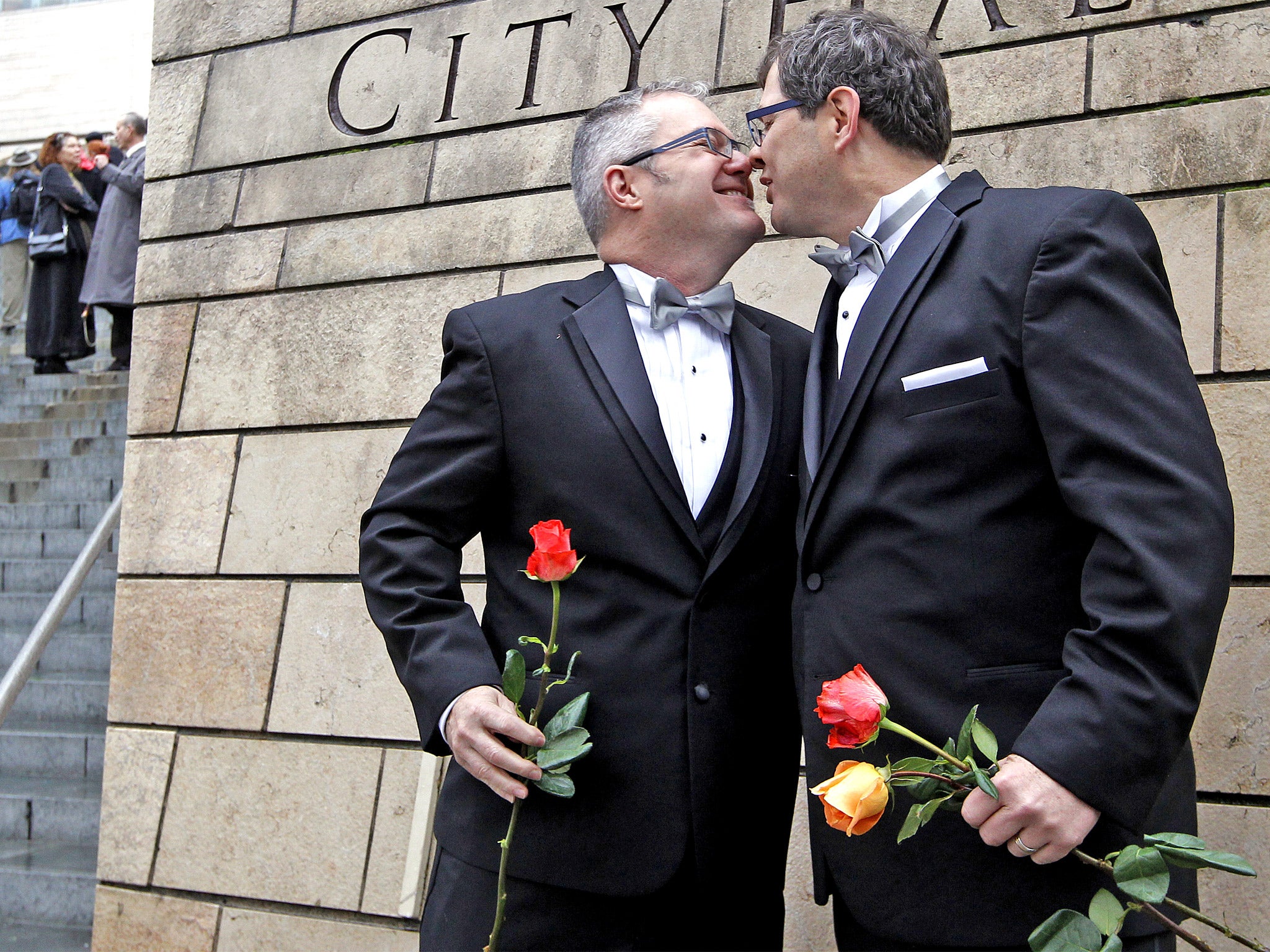David Cameron's gay marriage proposal causes ill-feeling on all sides

Religious leaders worried that they could soon be obliged to conduct same-sex weddings have been offered a series of reassurances by ministers desperate to avoid a prolonged row with the Church and other faiths.
The moves are also designed to pacify Conservative traditionalists who insist marriage can only take place between a man and a woman. Last night the move appeared to have failed as Tory MPs queued up to condemn the plans and accuse the Government of acting against the country’s wishes.
Ahead of the announcement, Maria Miller, the Equalities minister, had been left in no doubt over the strength of hostility in faith communities – and among her colleagues – to rewriting the marriage laws of England and Wales.
Her critics feared the move to allow gay weddings in civil settings were the thin of a wedge leading to same-sex couples being able to demand church ceremonies.
Their suspicions were further aroused by the disclosure last week that religious groups would be allowed to “opt-in” to conduct gay weddings.
But Ms Miller today unveiled a planned “quadruple lock” system designed to reassure faith groups opposed to the reform.
Her planned legislation will state explicitly that no religious organisation – or minister – can be forced to marry same-sex couples. It will also make it unlawful for ceremonies to be staged unless the faith groups conducting them have expressly chosen to do so.
The Equality Act will be amended to ensure discrimination claims cannot be brought against individuals or organisations that will not marry homosexuals.
And in a surprise fourth move, the legislation will specify that it will be illegal for the Church of England or Church in Wales to stage same-sex wedding ceremonies. Her step means a new law would have to be passed if the CofE changed its stance.
In addition, Ms Miller said her department’s legal advice was that protections for religious freedom under the European Convention on Human Rights prevented gay weddings from being forced on unwilling faith groups.
The Labour leadership broadly welcomed the plans, but Yvette Cooper, the shadow Equalities Minister, accused the Government of caving in to Tory critics by including the CofE exemption.
She said: “Although the Church of England has said it does not support same sex marriage right now, I hope it will change its position in time. But Parliament should not make it harder for them to do so.”
Giles Fraser, who resigned as Canon Chancellor of St Paul’s Cathedral over the police treatment of Occupy protesters, tweeted: “So it will now be illegal for me to marry two people who [with] live each other. Now there is a cause worth going to prison for.”
The gay rights campaigner Peter Tatchell said: “Exempting the official established church sends the wrong signal. There is no reason why these churches should be treated differently from other faiths.”
However, there was widespread anger on the Tory benches over the plans, foreshadowing a parliamentary battle ahead for the Government.
The Tory MP Peter Bone told Ms Miller: “How dare you suggest you have any right, any mandate, to bring in this legislation?” He was later reported to have stormed out of a meeting with the minister.
The former Defence Minister, Sir Gerald Howarth, protested over a “massive social, cultural change” which the country did not support, while the MP Richard Drax denounced the Government’s “arrogance and intolerance” in stamping “their legislative boot on religious faith”.
The Roman Catholic Archbishops of Westminster and Southwark accused ministers of ignoring a petition signed by more than 600,000 opponents. They said: “The process by which this has happened can only be described as shambolic.”
An Ipsos-MORI poll last night found three-quarters of voters supported same-sex marriage. The most popular choice – 45 per cent – was that gay people should be allowed to get marry but religious organisations should not be required to stage ceremonies.
Subscribe to Independent Premium to bookmark this article
Want to bookmark your favourite articles and stories to read or reference later? Start your Independent Premium subscription today.

Join our commenting forum
Join thought-provoking conversations, follow other Independent readers and see their replies